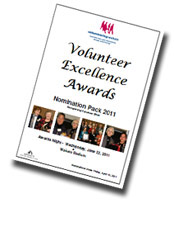Last Friday night I attended the Volunteer Excellence Awards function organised by Volunteering Waikato. It’s held every year during National Volunteer Week, and is an opportunity to recognise the many groups and individuals who put in their time towards a variety of causes.
It so happened that Friday was also World Refugee Day, a time for us to think of those who flee from war-torn areas or from political or social oppression. Those who fear for their safety, who are suffering from trauma and often severe poverty. The evening’s event marked both, by asking the head of the local NZ Red Cross Refugee Services to speak.
Rachel O’Connor spoke about the Afghan interpreters who worked with the NZ Army in Bamyan. Another 30 families were welcomed into Hamilton yesterday, at an event at the Waikato Migrant Resource Centre. These families are not refugees, but rather resettled by the NZ Defense Force in recognition of the fact that their lives would be in danger had they not left their country.
They are a lovely group of people, and I’m glad they have received a pretty positive welcomed into this country. They are lucky to have the backing of the NZDF, with a strong PR machine helping to get their stories into the media. The men have the added advantage of being able to speak fluent English, so being able to relay those stories in a way that we can understand.
It makes me think about other refugees who don’t have that backing, who don’t get the chance to tell their stories via these same media channels. And it really bothers me that refugees have come to be seen in such a negative light. One of the reasons this has happened is the use of political rhetoric to create fear – fear of the other, fear of being over-run by refugees, fear that by giving we will somehow lose out.
It’s almost beyond belief that people who really are some of the most vulnerable are used in this way, so that we are encouraged to overcome our natural feelings of empathy and compassion, and replace these with a sense of begrudging every little bit we do to help them improve their lives. Of course, not everyone feels that way. But there are enough who vocalise these thoughts for us to be concerned.
We’ve not yet experienced, in this country, the levels that John Howard reached in his scare-mongering tactics, and thankfully so. But it seems that there is still a long way to go before we will be raising our refugee quota. The case was put forward by Murdoch Stevens in this Herald piece, and if you’re not convinced, have a look at the “doing our bit” website.
There is often the argument put forward that we need to be looking after our own first. But the fact is that we have enough in this country to both look after our own and to do more for refugees in other parts of the world. That “our own” are not looked after is a matter of distribution of wealth, and the levels of inequality we are prepared to accept. It doesn’t have to be so, and we could institute a lot of simple measure to ensure that everyone here has a decent standard of living. We could push for widespread adoption of the living wage policy, increase taxes for those on the highest income levels, have a capital gains tax, have a government policy of full employment, require government to buy New Zealand made in the first instance, and so much more.
But it’s generally the same people who don’t want to increase the refugee intake who also don’t want policies that will reduce income & wealth inequality. They aren’t really interested in “looking after our own first”, so cannot countenance the thought of looking after a small number of people from other countries, and we do really take in a very small number.
We can and should be doing more. It’s just a matter of political will.
Anjum Rahman. – I fit into a lot of boxes – I’m an ethnic minority (born in india), a religious minority (muslim), and a woman. I’m a mother, an accountant, a political activist and a feminist. All of these form part of my identity to a greater or lesser degree. most of all though, I’m a rebel who refuses to fit neatly into boxes or to conform to the patterns that people expect of me.






Fantastic article and i totally agree. Pity all they other rubbish is going. Hopefully more people will read what you saying.
Comments are closed.